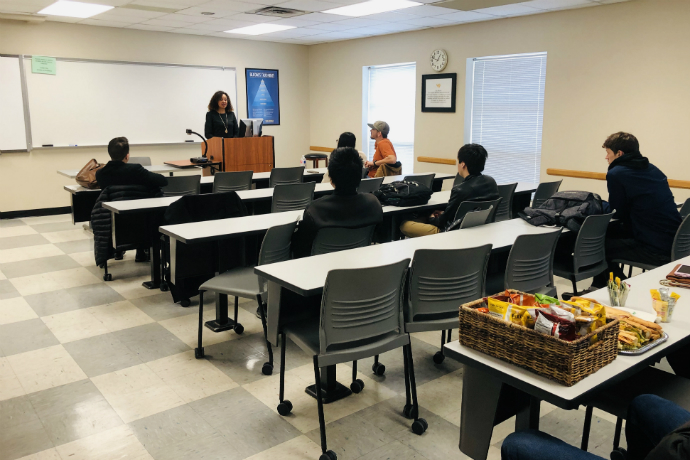Finance Club exposed to banking industry with Courtney Lewis

Courtney Lewis of Mutual of Omaha Bank was invited by the Finance Club to share her advice for entering the banking industry. Lewis is a senior vice president and has many years of experience to enhance her knowledge of how banks operate.
It is best to start at a large bank for training opportunities, then move to a small bank after gaining experience. “The business may not be what people think it is, so it is recommended to take internships before moving forward,” Lewis said.
She suggests gaining as much knowledge as possible with a mentor and formal business training programs like Swigby. Big banks serve as starting points as they hold more structure, training, and oversight. Though they are more established and organized, they provide less income.
Most experienced workers move to a smaller bank to progress their careers. Small banks provide more income, but employees are expected to know their work diligently with little to no training.
Through her years in the field, networking has remained the best way of entering banking. A mentor will likely have connections for utilization while also providing guidance when necessary.
“Make sure you’re always moving forward in some way,” Lewis said. “Remaining still too long will cause the job market to leave you behind.” However, moving job’s too much implies that the applicant can’t maintain a position.
The economy always affects the course of action. For example, if the economy is bad, it would be best to go back to school for more certifications and knowledge in the competitive job market.
Though Lewis shared her challenges, her best advice is simply to follow what’s best for you. But be aware – in banking, you don’t get paid to take a lot of risks.







